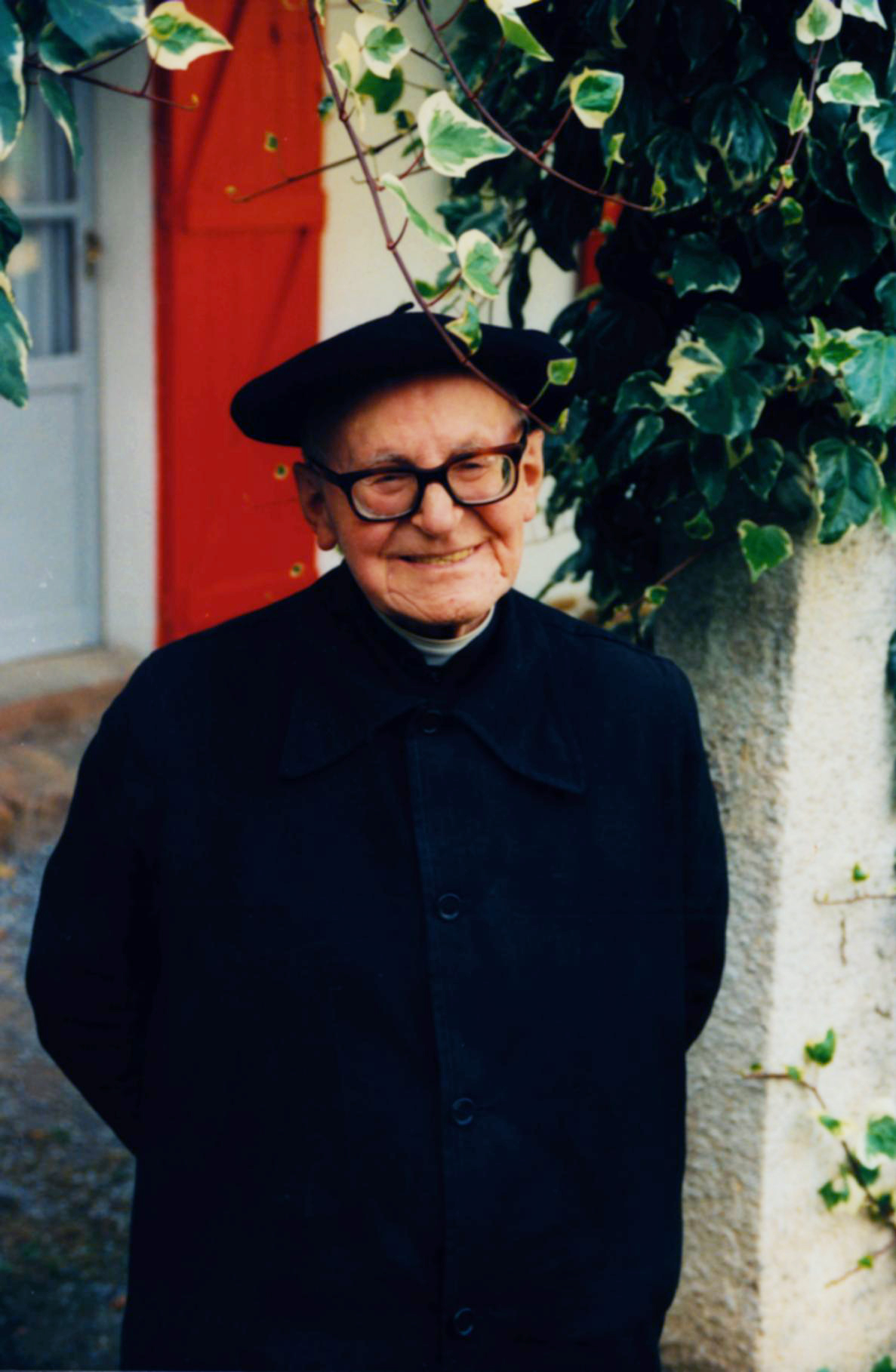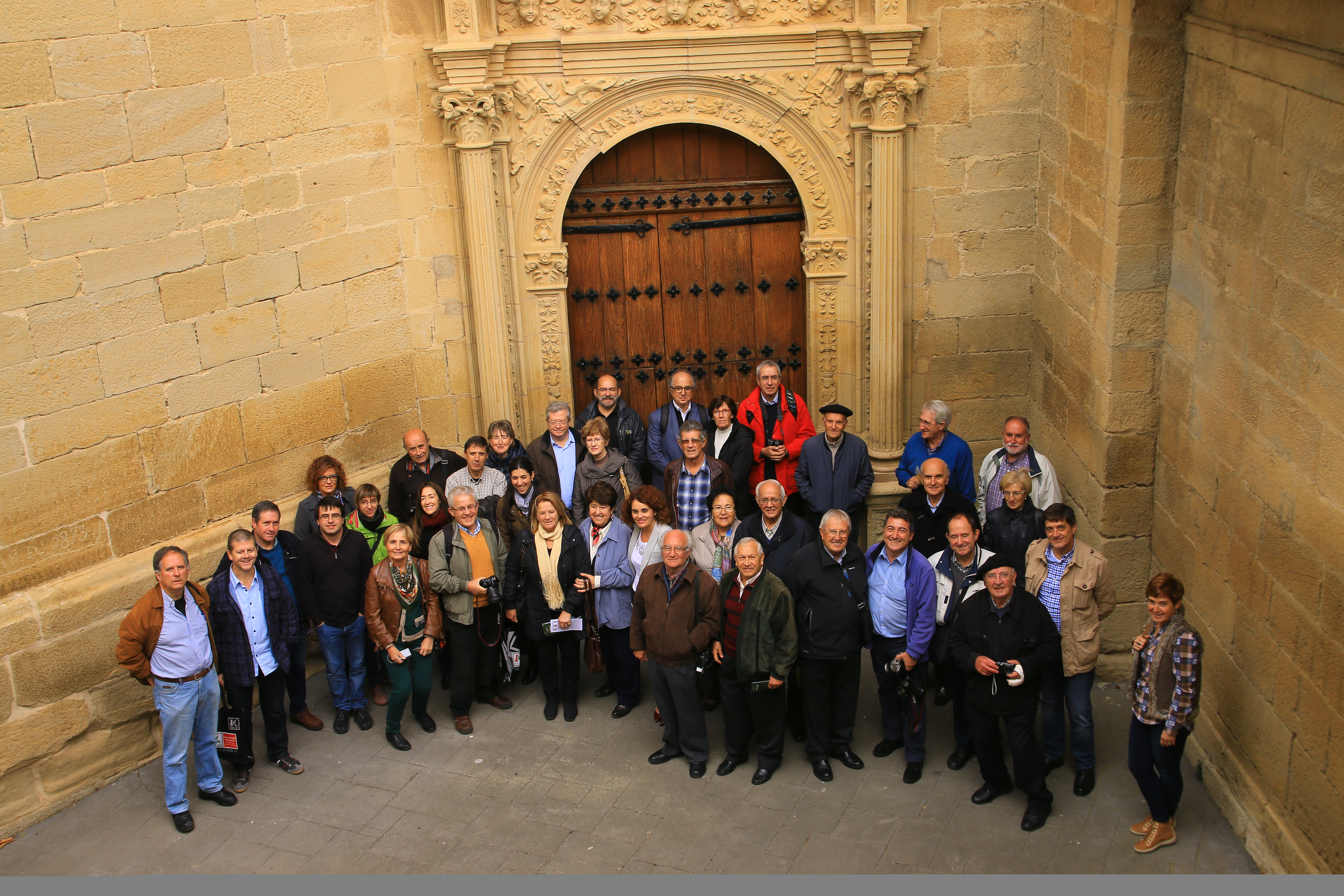
Barandiaran at Sara Etxea. Ataun, 1987. Ángel Alonso. Labayru Fundazioa Photographic Archive.
On 21 December 2017 we commemorated the 25th anniversary of the death of José Miguel de Barandiaran. Those of us who devote ourselves to ethnography as members of the Etniker (name created by Barandiaran to signify ‘ethnographic research’) groups certainly owe him a debt of gratitude. He not only founded the mentioned working groups but transformed a discipline which had until then been rooted in rather romantic and biased views. Barandiaran’s new approach to ethnography was based on scientific evidence. By adopting a systematic method and maintaining, first and foremost, such an open frame of mind, he put us on the broad European map.
In a few years it will be a century since the earliest ethnographic studies led by him were published. The Etniker project, which is being developed by four groups in the southern Basque Country and a fifth one representing the three northern or continental territories, was launched some decades ago. Federated in a larger association known as Etniker Euskalerria Groups, the referred teams have been engaged for thirty years in the making of a collective work titled Ethnographic Atlas of the Basque Country. Barandiaran lived long enough to see at nearly 102 years of age the publication of the first volume of the collection he himself had designed and promoted.

Meeting of Etniker Euskalerria Groups. Moreda de Álava, 2015. Labayru Fundazioa Photographic Archive.
Above and beyond any considerations and judgements on this joint undertaking, there is one issue we would like to highlight. Despite the obvious limitations imposed by the passing of time and the profound social changes currently taking place, the Etniker Groups are still alive and kicking. Why is it Barandiaran managed to bring and hold together people in a way it had not been achieved before? The Etniker Groups are made of men and women, young and old, with academic training or none at all, believers or not quite so, of wide-ranging political ideologies, speakers of different Basque, Spanish or French varieties, mountain dwellers and inhabitants of vast plains alike; yet we stay united.
As well as showing interest for the unique features specific to the Basque people which distinguish and separate us from others, Barandiaran gave prevalence to those traits characteristic to us all, diversity being chief among us. In the small geographical area where the aforesaid territories are located, variations indeed occur at every level, particularly in the cultural sphere.
Instead of concentrating on distinctive hallmarks which wrongly tackled might have given rise to stereotypes and prejudice, he was concerned his collaborators registered such variety, each in the region we were born or bred. That is the bond which keeps us together, namely the love for knowing what is peculiar to us and a deep respect for what characterizes others.
Luis Manuel Peña, Ander Manterola, Gurutzi Arregi and Segundo Oar-Arteta – Etniker Bizkaia – Etniker Euskalerria Groups
Translated by Jaione Bilbao – Language Department – Labayru Fundazioa